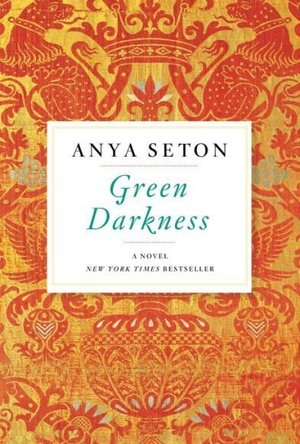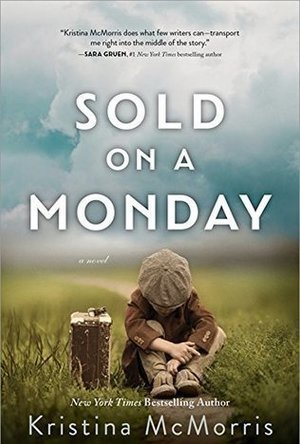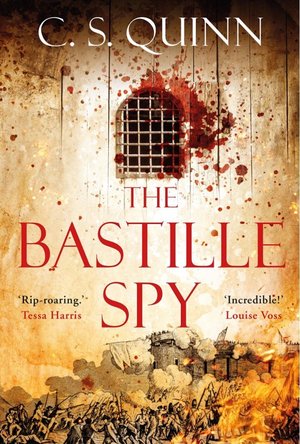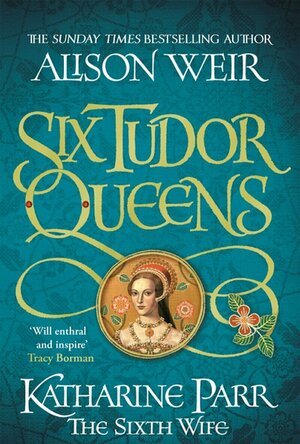Search
Search results
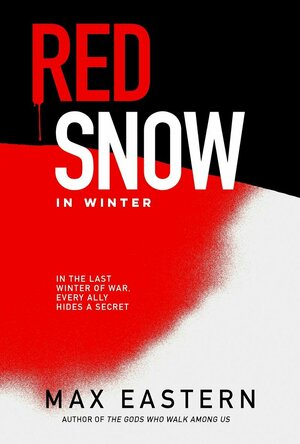
Red Snow in Winter
Book
In the final weeks of World War II, a young American intelligence officer is caught in a web of...
Historical Thriller World War II Espionage Fiction
Haley Mathiot (9 KP) rated My Unfair Lady in Books
Apr 27, 2018
My Unfair Lady by Kathryne Kennedy
Genre: Historical fiction, Historical Romance
Rating: 4/5
Summary (from the back of the book):
HE CREATED THE PERFECT WOMAN… the impoverished Duke of Monchester despises the rich Americans who flock to London, seeking to buy their way into the ranks of the British peerage. So when railroad heiress Summer Wine Lee offers him a king’s ransom if he’ll teach her to become a proper lady, he’s prepared to rebuff her. But when he meets the petite beauty with the knife in her boot, it’s not her fortune he finds impossible to resist…
…FOR THE ARMS OF ANOTHER MAN. Frontier-bred Summer Wine Lee has no interest in winning over London society—it’s the New York bluebloods and her future mother-in-law she’s determined to impress. She knows the cost of smoothing her rough-and-tumble frontier edges will be high. But she never imagined it might cost her her heart…
Review: This book is so cute! The dialogue is lively, the characters are likeable (or in the case of the “bad ones”, hate-able), and the images and descriptions are clear and visible. I loved it by the end of the first chapter.
Summer was my kind of girl. She grinned when things were funny instead of trying to remain indifferent, she wasn’t afraid to show how she felt—but she could also throw a knife, shoot an arrow better than the woman champion of their day, and mount and ride a horse bareback (which I think is so cool!). She has a love for animals—and odd ones at that. She owns a three-legged dog, a dog with four legs but the size of a small horse, a monkey, a pocket-sized puppy, a fox, and a cat with no back legs (it sits in a cart and rolls around the room). She was raised by an Indian (one of those childhood dreams that I never quite left behind…) and he was the one who had taught her all that great stuff. Watching her try to settle into society was hilarious.
MY UNFAIR LADY has a lot of tension in it—both inner turmoil from poor Summer, and also sexual tension between the characters. However, it wasn’t overpowering because was so funny. I found that I laughed just as often as tension was built, so there was a constant, even balance. The end was very exciting, and I found it impossible to put down. Overall, reading this book was a hilarious and wonderful experience, and an unforgettable escape from reality.
Plot: My Fair Lady (the movie) shows a girl who is transformed to a lady, then the man falls in love with her. I love the change that has taken place in MY UNFAIR LADY—The man doesn’t want to change her, because he loves her the way she is. I like this plot better than the first!
Writing: The writing was decent, acceptable, and more readable than a lot of newly published romances. Though it wasn’t Dante, it wasn’t hard to read either.
Content: Refreshingly, there was no language in this book. Summer has her own set of expletives, but they weren’t offensive (“Tarnation!”). As far as sex, let’s just say there were several scenes (pages) in this book that I skipped completely, and just started reading again where the dialogue picked up. I didn’t miss anything important.
Recommendation: Ages 18+ to lovers of Historical fiction, Romance in general, or anyone who loves a girl who can shoot a gun, wield a knife, or use a bow and arrow better than a man!
**Thanks to Danielle at Sourcebooks for supplying my review copy!**
Genre: Historical fiction, Historical Romance
Rating: 4/5
Summary (from the back of the book):
HE CREATED THE PERFECT WOMAN… the impoverished Duke of Monchester despises the rich Americans who flock to London, seeking to buy their way into the ranks of the British peerage. So when railroad heiress Summer Wine Lee offers him a king’s ransom if he’ll teach her to become a proper lady, he’s prepared to rebuff her. But when he meets the petite beauty with the knife in her boot, it’s not her fortune he finds impossible to resist…
…FOR THE ARMS OF ANOTHER MAN. Frontier-bred Summer Wine Lee has no interest in winning over London society—it’s the New York bluebloods and her future mother-in-law she’s determined to impress. She knows the cost of smoothing her rough-and-tumble frontier edges will be high. But she never imagined it might cost her her heart…
Review: This book is so cute! The dialogue is lively, the characters are likeable (or in the case of the “bad ones”, hate-able), and the images and descriptions are clear and visible. I loved it by the end of the first chapter.
Summer was my kind of girl. She grinned when things were funny instead of trying to remain indifferent, she wasn’t afraid to show how she felt—but she could also throw a knife, shoot an arrow better than the woman champion of their day, and mount and ride a horse bareback (which I think is so cool!). She has a love for animals—and odd ones at that. She owns a three-legged dog, a dog with four legs but the size of a small horse, a monkey, a pocket-sized puppy, a fox, and a cat with no back legs (it sits in a cart and rolls around the room). She was raised by an Indian (one of those childhood dreams that I never quite left behind…) and he was the one who had taught her all that great stuff. Watching her try to settle into society was hilarious.
MY UNFAIR LADY has a lot of tension in it—both inner turmoil from poor Summer, and also sexual tension between the characters. However, it wasn’t overpowering because was so funny. I found that I laughed just as often as tension was built, so there was a constant, even balance. The end was very exciting, and I found it impossible to put down. Overall, reading this book was a hilarious and wonderful experience, and an unforgettable escape from reality.
Plot: My Fair Lady (the movie) shows a girl who is transformed to a lady, then the man falls in love with her. I love the change that has taken place in MY UNFAIR LADY—The man doesn’t want to change her, because he loves her the way she is. I like this plot better than the first!
Writing: The writing was decent, acceptable, and more readable than a lot of newly published romances. Though it wasn’t Dante, it wasn’t hard to read either.
Content: Refreshingly, there was no language in this book. Summer has her own set of expletives, but they weren’t offensive (“Tarnation!”). As far as sex, let’s just say there were several scenes (pages) in this book that I skipped completely, and just started reading again where the dialogue picked up. I didn’t miss anything important.
Recommendation: Ages 18+ to lovers of Historical fiction, Romance in general, or anyone who loves a girl who can shoot a gun, wield a knife, or use a bow and arrow better than a man!
**Thanks to Danielle at Sourcebooks for supplying my review copy!**

Dominicana
Book
SHORTLISTED FOR THE WOMEN'S PRIZE FOR FICTION 2020 'A story for now, an important story . . ....
Historical Fiction New York Literary Fiction Adult Fiction The Dominican Republic Coming of Age
Connor Sheffield (293 KP) rated Black Sails - Season 1 in TV
May 30, 2017
Great Cast (3 more)
Brilliant Action
Great Drama
Very Accurate (thought not 100%)
Game of Thrones with Pirates
I was unawares during my first initial viewing of this show that this was in fact a prequel of sorts to the famous classic novel by Robert Louis Stevenson, Treasure Island. Though I knew that I had heard the names Flint and John Silver among others. However, I must admit, I have never seen, nor read any adaptation of the classic (I know shameful) but I intend to as it is in my collection of books and has been for years. I collected the 'Golden Library' collection which contains nearly all of the most classic books that are must reads for any book worm, and though I do not claim to be a book worm nor a large reader of any kind, I take interest in anything to do with Pirates, Vikings, and most historical fiction.
This show is a great representation of the life and time of Piracy however, and I can review it from a point of view of someone who knows quite a bit about the golden age of piracy in actual historical facts. Unlike the previous pirate content I reviewed, Blackbeard, this show portrays pirates as scarred, dirty, bloody, and frightening in their own way. However, similar to the Blackbeard short series, the pirates and other characters all have near perfect teeth. It seems to be that only (in what I have seen anyways) the Pirate's of the Caribbean franchise has managed to nail the full historical accuracy of the look of a pirate from clothing, to makeup, to the teeth.
On the other hand, this does not cause much of a disturbance to the viewing of this show, because the drama is brilliant, if you can bare the somewhat slow plot lines unfold as there are many characters in this show, and each have a ship full of issues that all need resolving with very few of them actually being resolved. From love interests, to thievery, betrayal and all round general opposition between old allies and acquaintances. There is a lot of 'business' to deal with on the side of Eleanor Guthrie and her dealings with our main protagonists, among other important characters, some of which are based upon historical figures such as Captain Benjamin Hornigold, Charles Vane, Anne Bonny and Jack Rackham (known throughout history as Calico Jack). All portrayed as tough, cunning and sometimes (most times for Rackham) as humerous.
The production of this show is great, with beautiful sets, great looking props and special effects that make this a believable series to get lost in. It's one of the better pirate themed mediums that I have seen, and I personally really enjoy the drama and suspense of the episodes, as well as the twists and turns of certain scenario's which leave you wanting more.
The cast deliver great performances and make you believe that they are truly men or women to be feared, and not to be double crossed. From Charles Vane's tough exterior, to Eleanor Guthrie's power over trade in Nassau, and even Captain Flint's fear inducing presence, as we watch his secrets spill out into the hands of the wrong people.
This is a show I would recommend to anyone who enjoys the theme of pirates, with some fantasy and a lot of drama, but I should warn you, that it doesn't hold back with neither the nudity or the actions performed, during the state in which someone would be naked. Whether it's the whores in the brothel, or the few short term relationships between characters.
Minor Spoilers - nothing too important.
The first example you see of this extent of mature content, as well as some of the humour of this show, is when John Silver is taken into a whore house, and is told that 'Blackbeard' wishes to see him. When he enters, he finds a woman standing there, and as John Silver points out "You are not Blackbeard" only to discover that the beard, is revealed to be between her legs.
As I said, watch at your own risk but I would recommend it to anyone interested in the theme of Pirates during the Golden Age.
This show is a great representation of the life and time of Piracy however, and I can review it from a point of view of someone who knows quite a bit about the golden age of piracy in actual historical facts. Unlike the previous pirate content I reviewed, Blackbeard, this show portrays pirates as scarred, dirty, bloody, and frightening in their own way. However, similar to the Blackbeard short series, the pirates and other characters all have near perfect teeth. It seems to be that only (in what I have seen anyways) the Pirate's of the Caribbean franchise has managed to nail the full historical accuracy of the look of a pirate from clothing, to makeup, to the teeth.
On the other hand, this does not cause much of a disturbance to the viewing of this show, because the drama is brilliant, if you can bare the somewhat slow plot lines unfold as there are many characters in this show, and each have a ship full of issues that all need resolving with very few of them actually being resolved. From love interests, to thievery, betrayal and all round general opposition between old allies and acquaintances. There is a lot of 'business' to deal with on the side of Eleanor Guthrie and her dealings with our main protagonists, among other important characters, some of which are based upon historical figures such as Captain Benjamin Hornigold, Charles Vane, Anne Bonny and Jack Rackham (known throughout history as Calico Jack). All portrayed as tough, cunning and sometimes (most times for Rackham) as humerous.
The production of this show is great, with beautiful sets, great looking props and special effects that make this a believable series to get lost in. It's one of the better pirate themed mediums that I have seen, and I personally really enjoy the drama and suspense of the episodes, as well as the twists and turns of certain scenario's which leave you wanting more.
The cast deliver great performances and make you believe that they are truly men or women to be feared, and not to be double crossed. From Charles Vane's tough exterior, to Eleanor Guthrie's power over trade in Nassau, and even Captain Flint's fear inducing presence, as we watch his secrets spill out into the hands of the wrong people.
This is a show I would recommend to anyone who enjoys the theme of pirates, with some fantasy and a lot of drama, but I should warn you, that it doesn't hold back with neither the nudity or the actions performed, during the state in which someone would be naked. Whether it's the whores in the brothel, or the few short term relationships between characters.
Minor Spoilers - nothing too important.
The first example you see of this extent of mature content, as well as some of the humour of this show, is when John Silver is taken into a whore house, and is told that 'Blackbeard' wishes to see him. When he enters, he finds a woman standing there, and as John Silver points out "You are not Blackbeard" only to discover that the beard, is revealed to be between her legs.
As I said, watch at your own risk but I would recommend it to anyone interested in the theme of Pirates during the Golden Age.
Acanthea Grimscythe (300 KP) rated Green Darkness in Books
May 16, 2018
Having picked <i>Green Darkness</i> up from the local library bookstore sale for only a quarter, I truly had no idea what I was getting myself into. Historical fiction, in any form, is not a genre that I've spent much time with, and coupling that with paranormal romance? Well, we can safely say that I was in for a ride.
<i>Green Darkness</i> shares the harrowing tale of forbidden love in mid-1500s England between an unfortunate peasant girl and a Benedictine monk, betwixt the reigns of King Edward VI, Queen Mary I, and Queen Elizabeth - a time when Catholicism and Protestantism (depending on the ruler) were met with persecution. It doesn't begin in that era, however; rather, the story starts in the 1960s, when Celia and her newly wedded husband, Richard Marsdon, arrive at his family's ancestral estate in Sussex. A baffling illness befalls the Marsdons, leaving the unorthodox physician, Doctor Akananda, to unravel the mysterious past that haunts the pair from hundreds of years before.
The twisting tale that unravels of that love affair is only a small part of what I enjoyed about this book, as romance is not typically my cup of tea. What truly enticed me was [a:Anya Seton|18930|Anya Seton|https://d.gr-assets.com/authors/1224813438p2/18930.jpg]'s faithfulness not only to history, but to location, legend, and use of historical figures. Cowdray House and Ightham Mote are real places, and an unfounded rumor regarding the Mote suggests that a female skeleton was found within its walls - which Seton used as a basis for her story. Through Seton, I discovered an unknown love for Tudor England, and undoubtedly I will read more books set in that time period.
Despite my praise for the book, I was unable to give it a five star rating because of its conclusion: it was as if Seton ran out of fuel. The idea of reincarnation takes a more ridiculous turn when Doctor Akananda hints at more pasts that conveniently interlock the same people. As if that were not enough of an affront, the resolution itself fell flat. With the Marsdon family tragedy conveniently wrapped up, Celia and Stephen seem aloof and their interaction felt a bit too forced. It is for this reason that I gave the book four stars.
<i>Green Darkness</i> shares the harrowing tale of forbidden love in mid-1500s England between an unfortunate peasant girl and a Benedictine monk, betwixt the reigns of King Edward VI, Queen Mary I, and Queen Elizabeth - a time when Catholicism and Protestantism (depending on the ruler) were met with persecution. It doesn't begin in that era, however; rather, the story starts in the 1960s, when Celia and her newly wedded husband, Richard Marsdon, arrive at his family's ancestral estate in Sussex. A baffling illness befalls the Marsdons, leaving the unorthodox physician, Doctor Akananda, to unravel the mysterious past that haunts the pair from hundreds of years before.
The twisting tale that unravels of that love affair is only a small part of what I enjoyed about this book, as romance is not typically my cup of tea. What truly enticed me was [a:Anya Seton|18930|Anya Seton|https://d.gr-assets.com/authors/1224813438p2/18930.jpg]'s faithfulness not only to history, but to location, legend, and use of historical figures. Cowdray House and Ightham Mote are real places, and an unfounded rumor regarding the Mote suggests that a female skeleton was found within its walls - which Seton used as a basis for her story. Through Seton, I discovered an unknown love for Tudor England, and undoubtedly I will read more books set in that time period.
Despite my praise for the book, I was unable to give it a five star rating because of its conclusion: it was as if Seton ran out of fuel. The idea of reincarnation takes a more ridiculous turn when Doctor Akananda hints at more pasts that conveniently interlock the same people. As if that were not enough of an affront, the resolution itself fell flat. With the Marsdon family tragedy conveniently wrapped up, Celia and Stephen seem aloof and their interaction felt a bit too forced. It is for this reason that I gave the book four stars.
graveyardgremlin (7194 KP) rated The Other Countess (The Lacey Chronicles, #1) in Books
Feb 15, 2019
THE OTHER COUNTESS is a sweet and harmless love story set in Tudor England during the reign of Queen Elizabeth I, in the year of 1582 to be exact. Lady Eleanor Rodriguez, Countess of San Jaime, is our penniless heroine who is saddled with her absent-minded alchemist father; the roles of child and parent have been long since been reversed. The preface, which takes place in 1578, gives us our first glimpse of William Lacey, the new Earl of Dorset at age fourteen, as he throws a twelve-year-old Ellie and her father off his land.
The story itself isn't exactly original and doesn't go into any unfamiliar territory, but it's ably told and fairly inoffensive, making it suitable for older teens (there are numerous allusions to sexual situations but that's as far as it goes). The dialogue and sensibilities are more modern in nature and don't always ring true to the era, but some liberties are always taken in young adult fiction, therefore making it something I can forgive. Very light on historical content, this is more for the romantics out there who like a historical backdrop to a love story. For the first half, I wasn't very involved into either the characters or their story, and it didn't help that it moved at a slow pace, though at the halfway point it picked up and started charming me. However, the hero and heroine were a little too perfect, more so in Ellie's case, as she didn't seem to really have any negative attributes other than she has a bit of a temper. Maybe if they had a few more rough edges I would have rooted for them to have their happy ending, as it is, I wasn't that invested. I do think that the secondary character, Lady Jane Perceval, has promise on that front since her narrative had a more realistic feel to it, so I may just pick up her story when it comes out ([b:The Queen's Lady|8805112|The Queen's Lady (The Lacey Chronicles, #2)|Eve Edwards|http://photo.goodreads.com/books/1327950501s/8805112.jpg|13679272]). The resolution to Will and Ellie's story came far too easily and some more conflict would have made it much better. Still, as I said, it's a sweet story, even if nothing sets it apart from other books. An easy read that should appeal to teenage girls.
The story itself isn't exactly original and doesn't go into any unfamiliar territory, but it's ably told and fairly inoffensive, making it suitable for older teens (there are numerous allusions to sexual situations but that's as far as it goes). The dialogue and sensibilities are more modern in nature and don't always ring true to the era, but some liberties are always taken in young adult fiction, therefore making it something I can forgive. Very light on historical content, this is more for the romantics out there who like a historical backdrop to a love story. For the first half, I wasn't very involved into either the characters or their story, and it didn't help that it moved at a slow pace, though at the halfway point it picked up and started charming me. However, the hero and heroine were a little too perfect, more so in Ellie's case, as she didn't seem to really have any negative attributes other than she has a bit of a temper. Maybe if they had a few more rough edges I would have rooted for them to have their happy ending, as it is, I wasn't that invested. I do think that the secondary character, Lady Jane Perceval, has promise on that front since her narrative had a more realistic feel to it, so I may just pick up her story when it comes out ([b:The Queen's Lady|8805112|The Queen's Lady (The Lacey Chronicles, #2)|Eve Edwards|http://photo.goodreads.com/books/1327950501s/8805112.jpg|13679272]). The resolution to Will and Ellie's story came far too easily and some more conflict would have made it much better. Still, as I said, it's a sweet story, even if nothing sets it apart from other books. An easy read that should appeal to teenage girls.
BeRad89 (48 KP) rated Sold on a Monday in Books
Mar 23, 2018 (Updated Mar 24, 2018)
Ellis Reed, a journalist, and Lilly Palmer, a editor's secretary, are brought into a whirlwind of decisions and consequences that all begin with a picture, two actually. The author, Kristina McMorris, sums it up best with her line in Sold on a Monday, “ A ripple of consequences from the click of a shutter.”
I enjoyed finding out about the character through bits and pieces of truth and history scattered throughout the book. It helped the characters evolve and changed how you viewed them as the story progressed. A character that once seemed up tight and snooty was transformed into a loving and caring individual through the glimpses we got of their true character. They were slowly revealed like a flower opening its petals. I liked that the story was told from two different points of view. It helped add a little depth to an otherwise flat book.
Other than a few key points, Part One of Sold on a Monday was unnecessary and tedious. I didn't get excited over being approved to review this book only to have thirty five percent of it to be about a typical journalist who abandons his principles to get “big scoops”. I struggled to get through this part of the book. It didn't make me want to come back for more. I wish this part had been parred down and more interesting area of the book further developed. I was disappointed in the lack of historical context. I was looking forward to getting better insight into people living during the Great Depression; however, the way this story was written, it could have taken place during any time period. Mostly, I was disappointed in how predictable the whole story ended up being. Other than a sad few flashes of excitement, it was flat.
Sold on a Monday by Kristina McMorris is a work of historical fiction. While she develops her characters well, her story itself is either utterly bland or utterly ridiculous. Sold on a Monday will be published August 28, 2018 by SOURCEBOOKS Landmark.
Overall, I gave this book 2 out of 5 stars. It was an okay read. All of Part One was average, but a typical reader will probably like this book. It isn't earth shattering or extraordinary. However, it is a quick and easy read after slogging through the first part. I was slightly disappointed.
I enjoyed finding out about the character through bits and pieces of truth and history scattered throughout the book. It helped the characters evolve and changed how you viewed them as the story progressed. A character that once seemed up tight and snooty was transformed into a loving and caring individual through the glimpses we got of their true character. They were slowly revealed like a flower opening its petals. I liked that the story was told from two different points of view. It helped add a little depth to an otherwise flat book.
Other than a few key points, Part One of Sold on a Monday was unnecessary and tedious. I didn't get excited over being approved to review this book only to have thirty five percent of it to be about a typical journalist who abandons his principles to get “big scoops”. I struggled to get through this part of the book. It didn't make me want to come back for more. I wish this part had been parred down and more interesting area of the book further developed. I was disappointed in the lack of historical context. I was looking forward to getting better insight into people living during the Great Depression; however, the way this story was written, it could have taken place during any time period. Mostly, I was disappointed in how predictable the whole story ended up being. Other than a sad few flashes of excitement, it was flat.
Sold on a Monday by Kristina McMorris is a work of historical fiction. While she develops her characters well, her story itself is either utterly bland or utterly ridiculous. Sold on a Monday will be published August 28, 2018 by SOURCEBOOKS Landmark.
Overall, I gave this book 2 out of 5 stars. It was an okay read. All of Part One was average, but a typical reader will probably like this book. It isn't earth shattering or extraordinary. However, it is a quick and easy read after slogging through the first part. I was slightly disappointed.
Louise (64 KP) rated A Tyranny of Petticoats (A Tyranny of Petticoats, #1) in Books
Jul 2, 2018
A Tyranny of petticoats is an all female written anthology about badass females. The 15 stories consist of Pirates, Assassins, Ghosts and Robbers whilst covering relevant American history such as Gold mining, the slave trade and war.
The stories are written in historical order, starting from 1710-1968. These are my ratings for each story:
Mother Carey's table by J.Anderson Coats ⭐.5 stars
The Journey by Marie Lu ⭐⭐⭐stars
Madeleine's choice by Jessica Spotswood ⭐⭐⭐.5 stars
El Destinos by Leslye Walton ⭐⭐⭐stars
High Stakes by Andrea Cremer ⭐⭐⭐ stars
The Red Ravenue Ball by Caroline Tung Richmond ⭐⭐stars
Pearls by Beth Revis ⭐⭐⭐.5 stars
Gold in the roots of grass by Marissa Meyer ⭐⭐⭐⭐stars
The Legendary Garnet Girls by Y.S.Lee ⭐⭐⭐stars
The colour of the sky by Elizabeth Wein ⭐⭐⭐ stars
Bonnie and Clydebank by Sundra Mitchell ⭐⭐⭐stars
Hard times by Catherine Longshore ⭐⭐⭐stars
City of Angels by Lindsay Smith ⭐⭐⭐.5 stars
Pulse of the Panthers by Kekla Magoon ⭐⭐⭐ stars
The whole world is watching by Robin Talley ⭐⭐stars
I wanted to read this collection of short stories as I had heard great things about it. This book should have been ideal for me, it's feminist historical fiction. Sadly this didn't deliver, none of the stories blew me away. In actual fact I have a hard time remembering what the stories were about. Some of the stories felt like they were an excerpt from a novel, some felt rushed and others under developed.
However,I am glad I got to read this as I get to explore authors that I have not read before and got to sample their work and see if I get on with their writing styles.
The book also has a short note from the author as to why they picked the era, why they contributed to the anthology and so on. I definitely want to explore more novels with American history such as the gold mining and slavery thanks to these authors.
Overall I rated this 3 out of 5 stars
The stories are written in historical order, starting from 1710-1968. These are my ratings for each story:
Mother Carey's table by J.Anderson Coats ⭐.5 stars
The Journey by Marie Lu ⭐⭐⭐stars
Madeleine's choice by Jessica Spotswood ⭐⭐⭐.5 stars
El Destinos by Leslye Walton ⭐⭐⭐stars
High Stakes by Andrea Cremer ⭐⭐⭐ stars
The Red Ravenue Ball by Caroline Tung Richmond ⭐⭐stars
Pearls by Beth Revis ⭐⭐⭐.5 stars
Gold in the roots of grass by Marissa Meyer ⭐⭐⭐⭐stars
The Legendary Garnet Girls by Y.S.Lee ⭐⭐⭐stars
The colour of the sky by Elizabeth Wein ⭐⭐⭐ stars
Bonnie and Clydebank by Sundra Mitchell ⭐⭐⭐stars
Hard times by Catherine Longshore ⭐⭐⭐stars
City of Angels by Lindsay Smith ⭐⭐⭐.5 stars
Pulse of the Panthers by Kekla Magoon ⭐⭐⭐ stars
The whole world is watching by Robin Talley ⭐⭐stars
I wanted to read this collection of short stories as I had heard great things about it. This book should have been ideal for me, it's feminist historical fiction. Sadly this didn't deliver, none of the stories blew me away. In actual fact I have a hard time remembering what the stories were about. Some of the stories felt like they were an excerpt from a novel, some felt rushed and others under developed.
However,I am glad I got to read this as I get to explore authors that I have not read before and got to sample their work and see if I get on with their writing styles.
The book also has a short note from the author as to why they picked the era, why they contributed to the anthology and so on. I definitely want to explore more novels with American history such as the gold mining and slavery thanks to these authors.
Overall I rated this 3 out of 5 stars
ClareR (6062 KP) rated The Bastille Spy in Books
Aug 1, 2019 (Updated Aug 1, 2019)
A very enjoyable historical spy adventure!
England’s best spy, in this novel set in only just pre-Revolution Paris (1789), is Attica Morgan. Yes, in a time where a woman was deemed to be the fairer, weaker sex, Attica is a ruthless, all-action spy in His Majesty’s Government. And I loved her.
I’ve no idea how likely this would have been, and largely speaking, I don’t actually care. This book is non-stop action, as Attica is asked to investigate the murder of a rebel in the Bastille. She sees how dangerous Paris is becoming, and how the French royal family really don’t care about their poorer subjects. Attica teams up with a Privateer/ Pirate to complete her mission - and I found myself wondering (and hoping - see point 2):
1. When the next book will be coming out*, and
2. Will he be in it!
*for the record, I know that this book has only just released, and I’m firmly of the opinion that authors should take as long as they want/ need to take over writing their books. Can’t help but want to see more of these fabulous characters though!
Attica’s backstory is fascinating: the bastard daughter of a British nobleman who has escaped from slavery, educated and brought up as a Lady, she is expected to marry to her family’s advantage (or to that of the Crown). Attica doesn’t really like playing by the rules though, and trains to be a spy - which sounds brutal, but prepares her for some pretty risky missions.
The French people generally, whether Royalists or Republicans, don’t come off terribly well. The Republicans all seem to be pretty bloodthirsty and immoral, the Royalists are ‘just’ immoral. So, happy days (I should also say here that I know lots of lovely French people who are neither immoral or bloodthirsty. Just to make that clear 😉)!
Have I said how much I liked this book? Because I really did. If you want a fun, exciting, historical fiction novel, then this will be right up your street. I’m definitely putting this in my ‘Look out for the next in the series’ watchlist (yes, I really do have one of those).
Many thanks to Jellybooks who provided me with a copy of this book to read and review all the way back in April 2019! I’ve had to try very hard to keep this under my hat since then!
I’ve no idea how likely this would have been, and largely speaking, I don’t actually care. This book is non-stop action, as Attica is asked to investigate the murder of a rebel in the Bastille. She sees how dangerous Paris is becoming, and how the French royal family really don’t care about their poorer subjects. Attica teams up with a Privateer/ Pirate to complete her mission - and I found myself wondering (and hoping - see point 2):
1. When the next book will be coming out*, and
2. Will he be in it!
*for the record, I know that this book has only just released, and I’m firmly of the opinion that authors should take as long as they want/ need to take over writing their books. Can’t help but want to see more of these fabulous characters though!
Attica’s backstory is fascinating: the bastard daughter of a British nobleman who has escaped from slavery, educated and brought up as a Lady, she is expected to marry to her family’s advantage (or to that of the Crown). Attica doesn’t really like playing by the rules though, and trains to be a spy - which sounds brutal, but prepares her for some pretty risky missions.
The French people generally, whether Royalists or Republicans, don’t come off terribly well. The Republicans all seem to be pretty bloodthirsty and immoral, the Royalists are ‘just’ immoral. So, happy days (I should also say here that I know lots of lovely French people who are neither immoral or bloodthirsty. Just to make that clear 😉)!
Have I said how much I liked this book? Because I really did. If you want a fun, exciting, historical fiction novel, then this will be right up your street. I’m definitely putting this in my ‘Look out for the next in the series’ watchlist (yes, I really do have one of those).
Many thanks to Jellybooks who provided me with a copy of this book to read and review all the way back in April 2019! I’ve had to try very hard to keep this under my hat since then!
Lottie disney bookworm (1056 KP) rated Six Tudor Queens: Katharine Parr, The Sixth Wife in Books
Mar 23, 2021
I have been reading Alison Weir books since I was a teenager so imagine how much I fangirled when I was given the opportunity to read an advanced copy of her final book in the Tudor Queens series!
To Netgalley and Headline, thank you, thank you, thank you!
It is my opinion that Katharine Parr is often the most overlooked of Henry VIII's wives: indeed most novels focus only on her life after becoming Queen. That is why this novel from Alison Weir was simply brilliant.
Weir introduces us to Katharine Parr as a girl, constantly surrounded by family and, after losing her father at a young age, being brought up by her uncle, aunt and her mother who was an attendant to Queen Katharine of Aragon.
The reader instantly falls in love with Katharine, an intelligent, caring child who is acutely aware of her eventual duty to her family but desperately wishes to remain in her carefree days with her siblings.
As we know, Tudor girls married young and Weir explores each of Katharine's four marriages in great detail: combining historical fact and storytelling in the way that only she can.
It struck me that, in three of Katharine's four marriages, she was used as a pawn, marrying for rank, power and connections as was the norm at the time.
However, in every one of these marriages Katharine was able to find love; even when marrying an old overweight Henry, already famous for disposing of numerous wives.
The writing during each of these marriages is rarely emotional: Katharine is a very rational and practical character, only showing real passion for religion. She is even super calm when she believes she is being investigated as a heretic!
It isn't until Katharine's fourth and final marriage that she marries for herself and for love. The passionate relationship between Katharine and Tom Seymour seeps into the writing at this point: introducing jealousy and anger where there has previously been merely a stoic resolve.
The fact that this novel spans the lifespan of Henry's marriages is fitting and really allows Weir to paint a picture of Tudor society throughout the religious reforms and upheavals associated with its monarch.
No one who has read Alison Weir's books before will be surprised that this is yet another success. Together with Philippa Gregory, Weir is a Queen of historical fiction and this novel is only the latest jewel in her crown.
To Netgalley and Headline, thank you, thank you, thank you!
It is my opinion that Katharine Parr is often the most overlooked of Henry VIII's wives: indeed most novels focus only on her life after becoming Queen. That is why this novel from Alison Weir was simply brilliant.
Weir introduces us to Katharine Parr as a girl, constantly surrounded by family and, after losing her father at a young age, being brought up by her uncle, aunt and her mother who was an attendant to Queen Katharine of Aragon.
The reader instantly falls in love with Katharine, an intelligent, caring child who is acutely aware of her eventual duty to her family but desperately wishes to remain in her carefree days with her siblings.
As we know, Tudor girls married young and Weir explores each of Katharine's four marriages in great detail: combining historical fact and storytelling in the way that only she can.
It struck me that, in three of Katharine's four marriages, she was used as a pawn, marrying for rank, power and connections as was the norm at the time.
However, in every one of these marriages Katharine was able to find love; even when marrying an old overweight Henry, already famous for disposing of numerous wives.
The writing during each of these marriages is rarely emotional: Katharine is a very rational and practical character, only showing real passion for religion. She is even super calm when she believes she is being investigated as a heretic!
It isn't until Katharine's fourth and final marriage that she marries for herself and for love. The passionate relationship between Katharine and Tom Seymour seeps into the writing at this point: introducing jealousy and anger where there has previously been merely a stoic resolve.
The fact that this novel spans the lifespan of Henry's marriages is fitting and really allows Weir to paint a picture of Tudor society throughout the religious reforms and upheavals associated with its monarch.
No one who has read Alison Weir's books before will be surprised that this is yet another success. Together with Philippa Gregory, Weir is a Queen of historical fiction and this novel is only the latest jewel in her crown.


